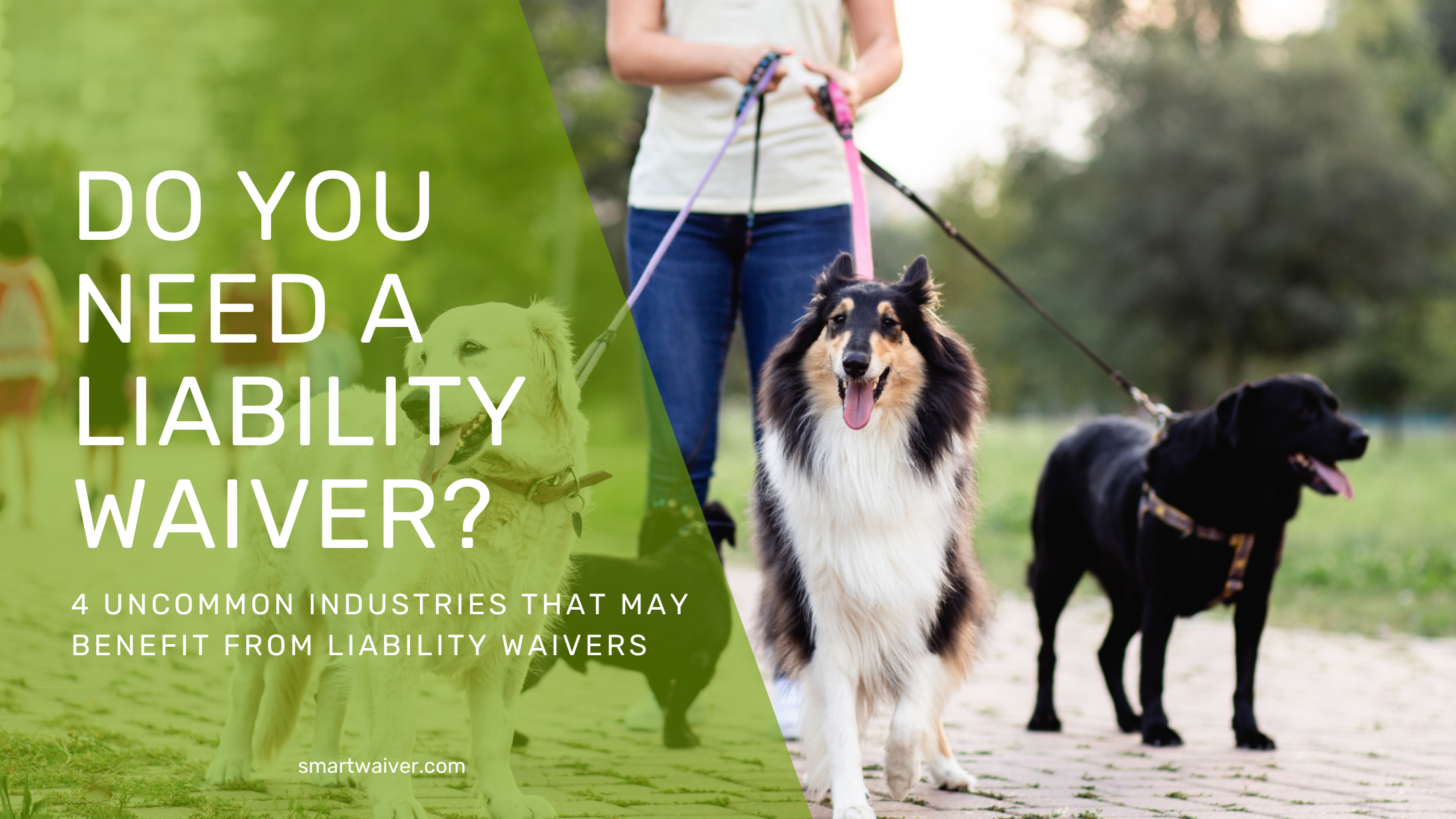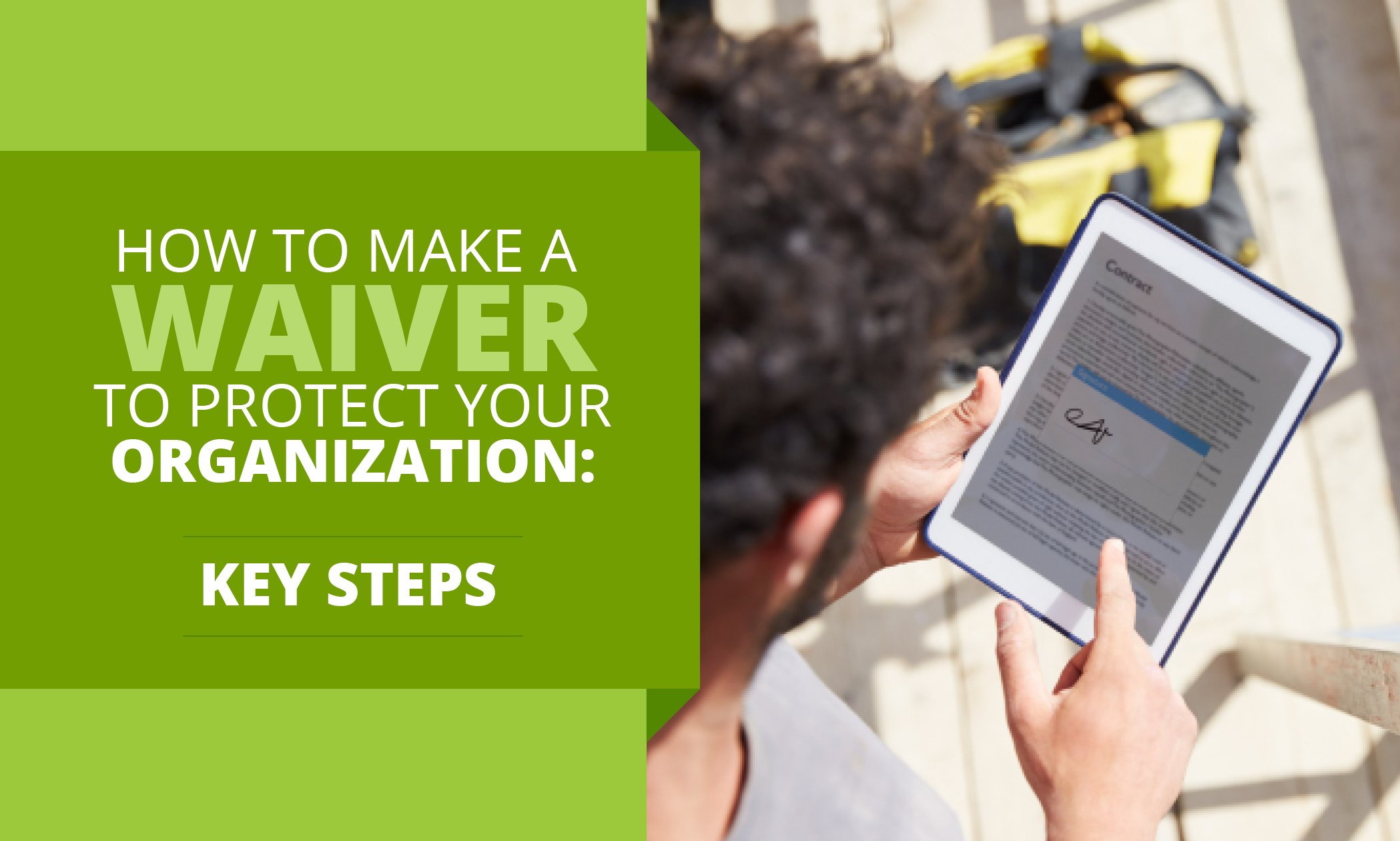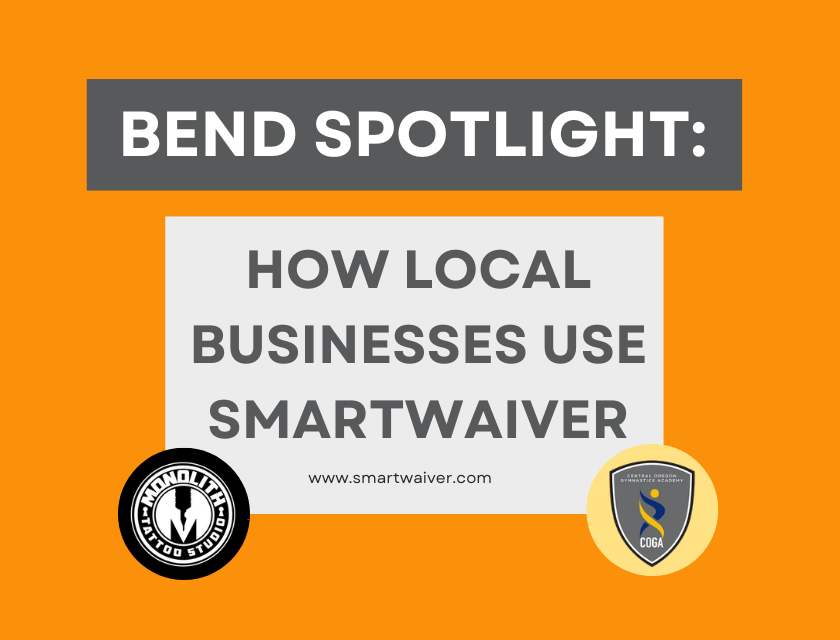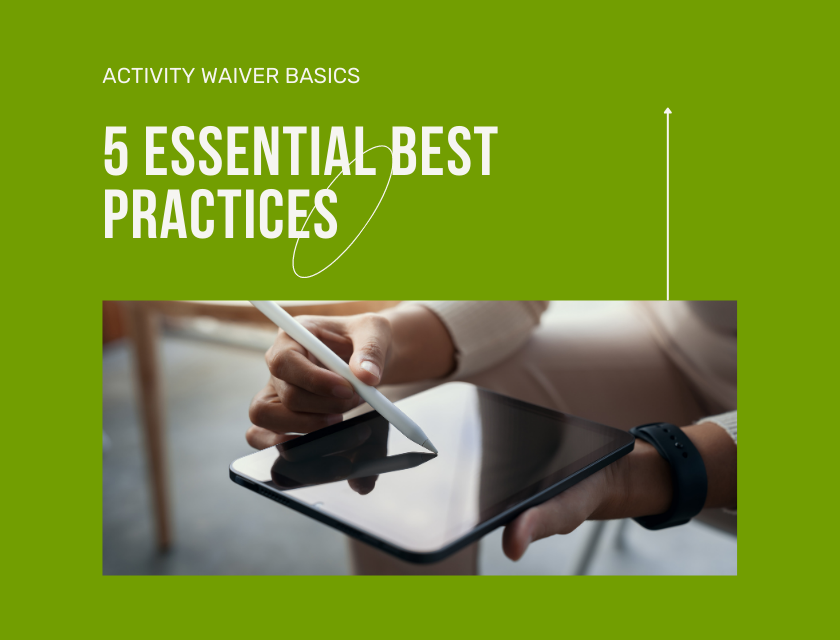
Do You Need a Liability Waiver?
Do You Need a Liability Waiver?
In industries like fitness and adventure tourism, liability waivers are commonplace. But what about businesses where risk is less apparent? When it comes to liability, "risk" can take many forms, and even organizations with relatively low danger may benefit from the protections afforded by a release of liability.
To help ensure your business is covered, we've outlined a handful of less common industries that can benefit from liability waivers.
Uncommon Industries That May Need a Liability Waiver
1. Animal & Pet Services
Veterinarians, groomers, dog walkers, and pet boarding facilities offer vital services. But these essential offerings all present their share of risk. Animals can be unpredictable, and even with the best intentions and precautions in place, it's not always possible to avoid accidents.
Animals may become injured in a fight at your doggy day spa, or an associate may cause an accidental injury during a grooming session.
Likewise, animal-related activities like horseback riding, petting zoos, and even dog parks may expose participants to injuries due to issues like falls or animal bites. Having a legally reviewed waiver in place can help make guests aware of these risks and protect your organization from liability.
2. Art Exhibits & Museums
You might not associate an art gallery with risk, but precariously hung paintings, unstable sculptures, and even light installations can find your organization in litigation.
Outlining potential dangers for your guests can raise awareness of issues they may not have considered, such as the potential for seizures in sensitive groups due to flashing or strobe light effects. It's also wise to ask your artists to sign a waiver, releasing liability for any accidental damages to their work or personal property while it's in your care.
3. Non-profits
Non-profit organizations often rely on volunteers for fundraising activities and initiatives. While well-intentioned, volunteers aren't always trained in the tasks they're performing, which can increase the risk of injury. Whether they're handling power tools, participating in physical activities, or working with the public, a volunteer liability waiver clearly outlines the level of risk involved before an individual partakes in an activity. It also releases your organization from any responsibility in the event someone is hurt.
4. Seasonal Attractions
Haunted house attractions provide terror by design, but they also come with their share of risk. Rattling chains and jump-scares may offer heart-pounding fun, but in the grips of fear, they can also result in trips, falls, and potential injuries. Likewise, more sensitive groups may also experience mental or physical trauma that can exacerbate pre-existing conditions. Amid the pandemic, seasonal attractions like corn mazes, hayrides, and haunted houses will also have to consider COVID-19 precautions, as these types of events generally require individuals to crowd into confined spaces, increasing the risk of transmission. By providing liability waivers upfront, participants accept the responsibility for risk, releasing your organization from harm.
Wrapping Up
Liability waivers protect your organization from litigation in the event of an accident or injury. And while we've provided a handful of industries who might benefit from these releases, the list truly goes on and on.
If you think your business might benefit from waivers, try it for yourself free.
If you're still not sure, contact us today to learn how Smartwaiver can better serve your organization.








.png)
.png)



.png)